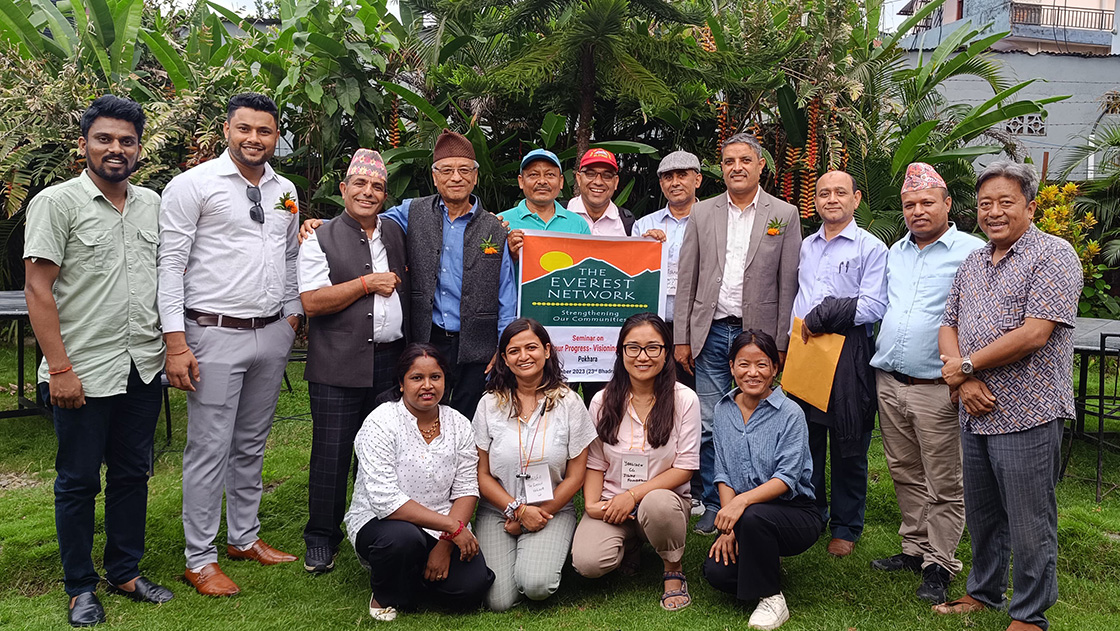OUR PROJECTS - Climate Change
The AA Approach
 During the monsoon of 2021, Helambu fell victim to the massive flooding of the Melamchi river. This disaster led to the loss of many lives, livelihoods and infrastructure. While people have moved on with their lives, until today, they have not been able to completely recover their losses.
During the monsoon of 2021, Helambu fell victim to the massive flooding of the Melamchi river. This disaster led to the loss of many lives, livelihoods and infrastructure. While people have moved on with their lives, until today, they have not been able to completely recover their losses.
With a mission to better prepare and safeguard the most vulnerable groups in Helambu against damage from impending floods, we launched our Anticipatory Action (AA) project in 2022.
The AA approach means acting ahead of predicted hazards to prevent or reduce acute humanitarian impacts before they fully unfold. AA, as such, is an integral part of disaster risk management, and it systematically links forecast information to actions that can help reduce disaster impacts and protect lives and livelihoods.
The following outcomes were achieved in the duration of this project:
- The short-term desired effects such as temporary relocation of child-led families in safer households, nutrition supplements to children with disabilities etc. in collaboration with ward offices were achieved.
- The planned preventative measures ahead of potential disasters were successfully implemented due to the swift planning and implementation in collaboration with the local government.
- The marginalized and vulnerable groups who were excluded during prior disasters were supported.
- The AA activities mobilized various stakeholders, including youths, community members and duty bearers across the Helambu Rural Municipality.
An increased knowledge, confidence and capacity to prepare for future disasters is recorded among community members and duty bearers:
- Communication platforms including participatory radio campaign increased local people’s engagement where both local community members and newly elected local politicians shared their voice.
- No deadly casualties were reported nor were no recorded cases of child trafficking during monsoon.
Sustainable funding for implementing AA should ideally come from the local and provincial governments. Civil society organizations play an important role in strengthening systems and capacities of local governments allowing effective implementation of AA.
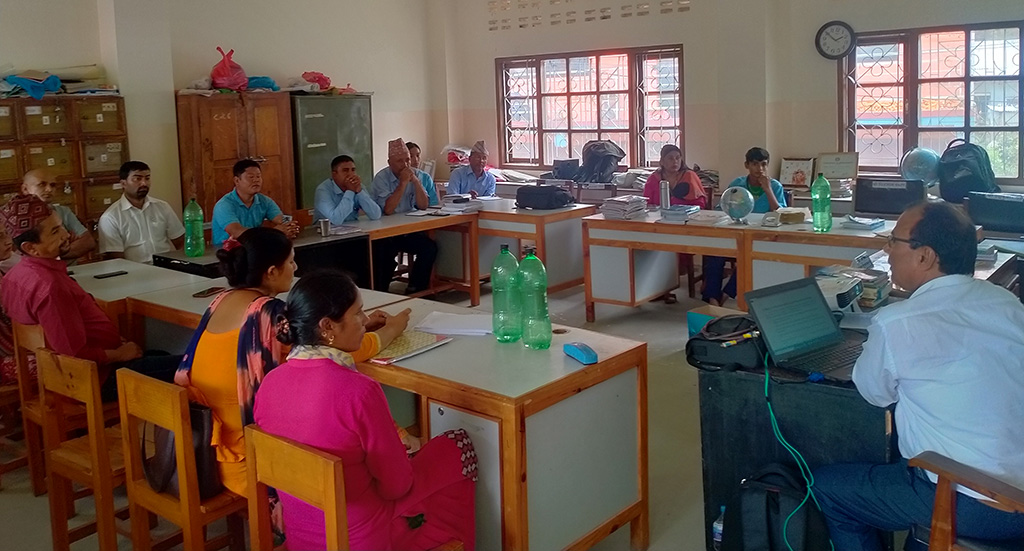
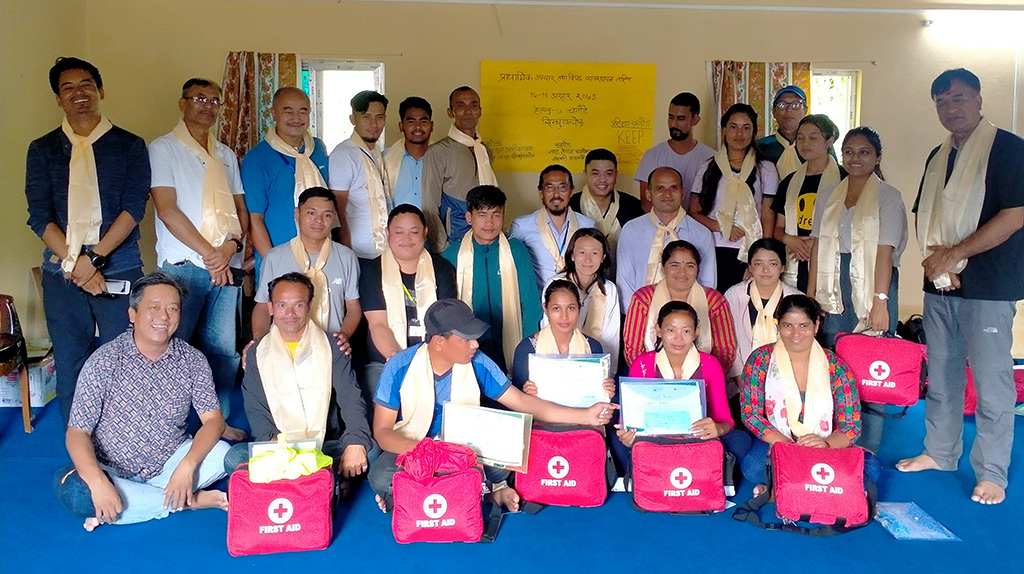
Better Locally Led Adaptation – Helambu, Nepal
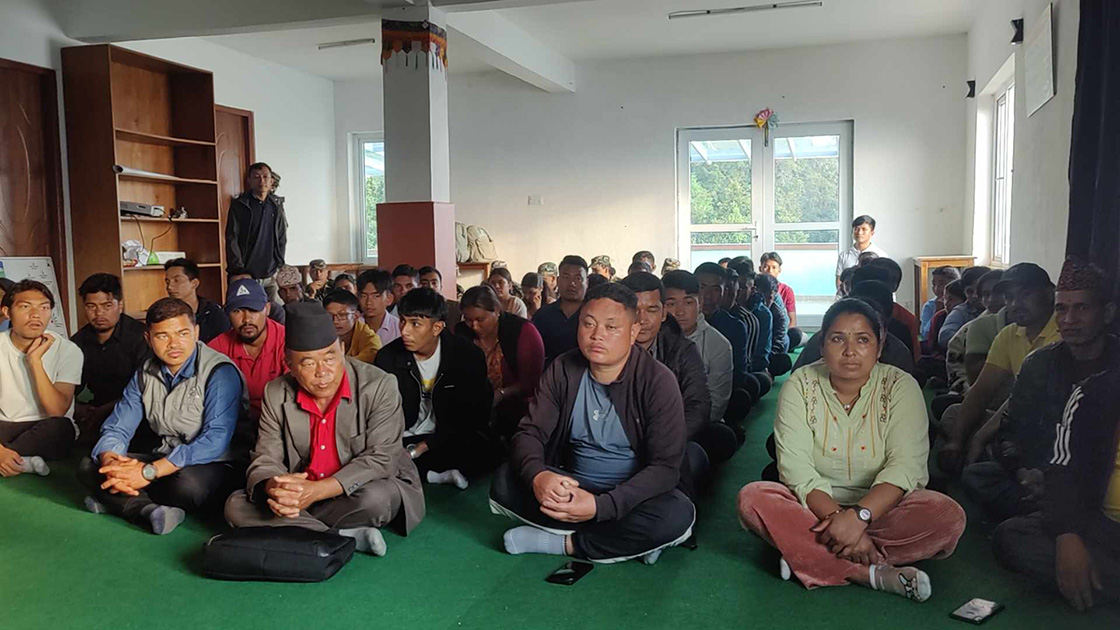
Empowering local stakeholders to lead climate change adaptation efforts ensures that communities on the front lines of climate impacts have a significant voice in decisions directly affecting their lives and livelihoods. Effective climate change adaptation necessitates a deep understanding of local contexts, encompassing local cultures, values, and knowledge systems. By prioritizing local leadership and insights, we can develop more resilient and sustainable strategies that are tailored to the unique needs and strengths of each community.
The Heart of our Project
The primary aim of the project is to support vulnerable communities and the local government of Helambu Rural Municipality in designing and establishing flexible, inclusive institutional frameworks to manage climate risks and facilitate locally led adaptation. By doing so, the project seeks to enhance resilience to climate change and ensure sustainable development in the region.
Our Objectives
- Capacity strengthening of the local ward disaster management committees’ knowledge, and technical capacity on climate adaptation and inclusion.
- Capacity strengthening of key municipality duty bearers on climate adaptation and management.
- Capacity strengthening of Youth Groups to act as rescue leaders during disasters.
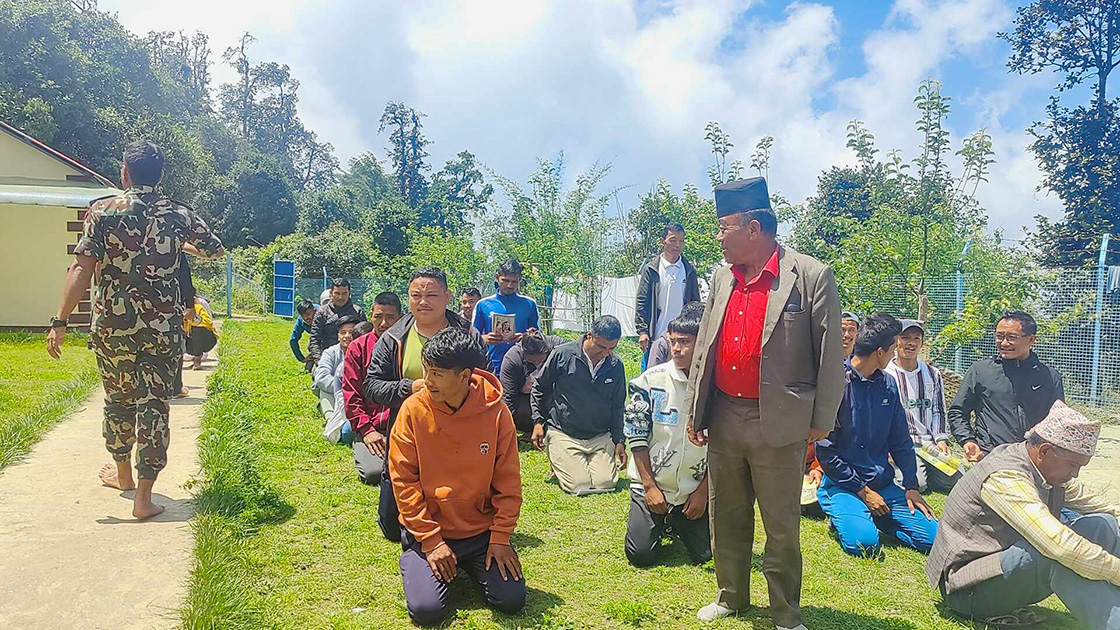
Who We Supported
- All the seven ward level disaster management committees.
- Households in the sixty-five settlements across Helambu Rural Municipality.
- Fifty-six youths who are trained as community-based first responders.
Timeline
July 2023 – September 2024
Our Partners in Change
Our Achievements
- A comprehensive and integrated local adaptation plan of action for 5 years has been produced for the Helambu Rural Municipality.
- Local Disaster Management Committee and Key Municipality duty bearers in Helambu are aware of Climate Change Adaptation and disaster management.
- 56 local youths in Helambu are trained as community based first responders and have basic rescue equipment in their communities.
- A local education sector contingency plan is currently being developed.
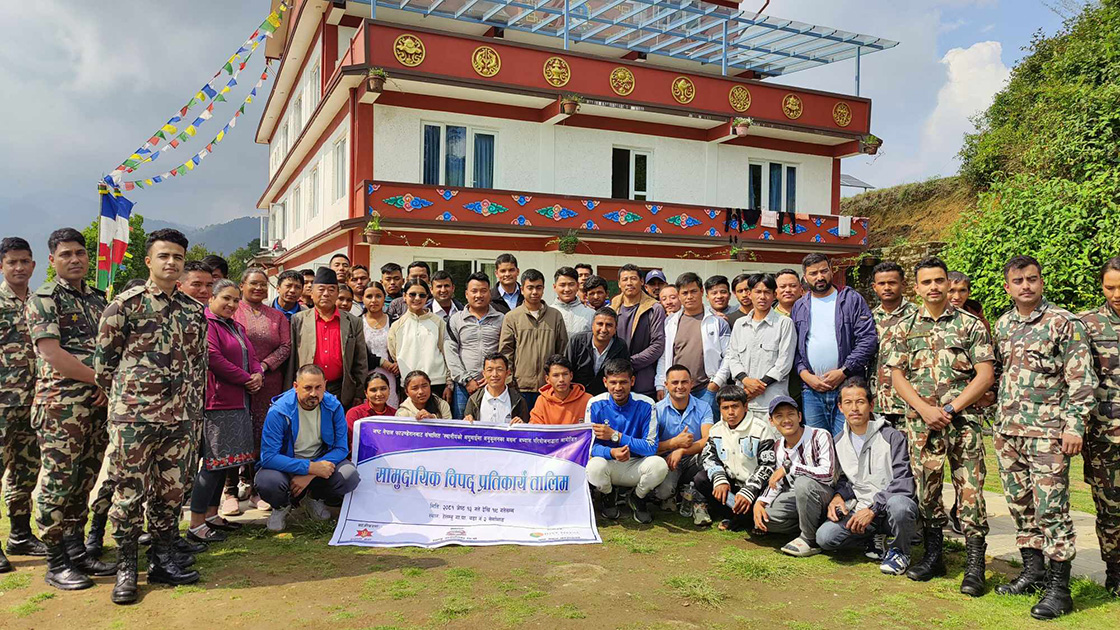
Strengthening Local Capacities to Tackle Climate Change in Nepal
Climate change is one of the most pressing issues of our time, affecting various sectors and communities worldwide. Our initiative, “The Everest Network,” in partnership with CISU and CICED, aimed to bolster the capacity, knowledge sharing, and cooperation among local CSOs and their local governments. This project emerged from the need to address the growing challenges posed by climate change through a series of seminars focusing on its causes, adaptation possibilities, preparedness, intersectionality, and diverse experiences within their implementing fields. This initiative aligns with significant priorities in the World 2030 agenda.
The Heart of Our Project
At its core, The Everest Network sought to empower local communities and authorities by integrating them into the process of combating climate change. We believe that by strengthening the connections between local CSOs, governments, and community-based organizations, we can build a resilient and informed network capable of addressing the multifaceted impacts of climate change.
We started off with a broad approach and gradually refined our focus to three key areas: Capacity Building, Knowledge Sharing, and Community Engagement.
Our Objectives
- To inspire and utilize each other’s resources so to better cope with the challenges presented by climate change.
- To better understand how to support our communities adapt to the growing insecurities of climate change, to secure preparedness so to decrease consequences of natural and climate related disasters.
- To advocate for local communities so they are key in the designing, planning and implementation of adaptation, preparedness interventions.
- Transforming of disaster interventions and financing from a reactive to a proactive model.
Who We Reached Out
Community-based organizations (CBOs) and their partners.
Activities That Made A Difference
We adopted a comprehensive approach to ensure widespread participation and impact. This involved the following measures:
Seminars and Workshops: Conducted a series of seminars to discuss climate change causes, adaptation possibilities, preparedness, and intersectionality.
Capacity Building: Strengthened the capacity of local CSOs through targeted training and resources.
Timeline
January 2022 – December 2023
Our Partners in Change
Achievements
- Established The Everest Network, involving seventeen local implementing CBOs.
- Strengthened the capacity of local CSOs and governments to address climate change challenges.
- Enhanced knowledge sharing and cooperation among stakeholders through an integrated, intersectional approach.
- The Everest Network has laid the groundwork for a more resilient and informed community, better equipped to face the challenges of climate change and secure a sustainable future for all.
- JNF is collaborating with Lo Gyalpo Jigme Foundation to help the rural municipalities of Lomanthang and Lo Gekar Damodarkunda to formulate their own Local Adaptation Plan of Action (LAPA).



